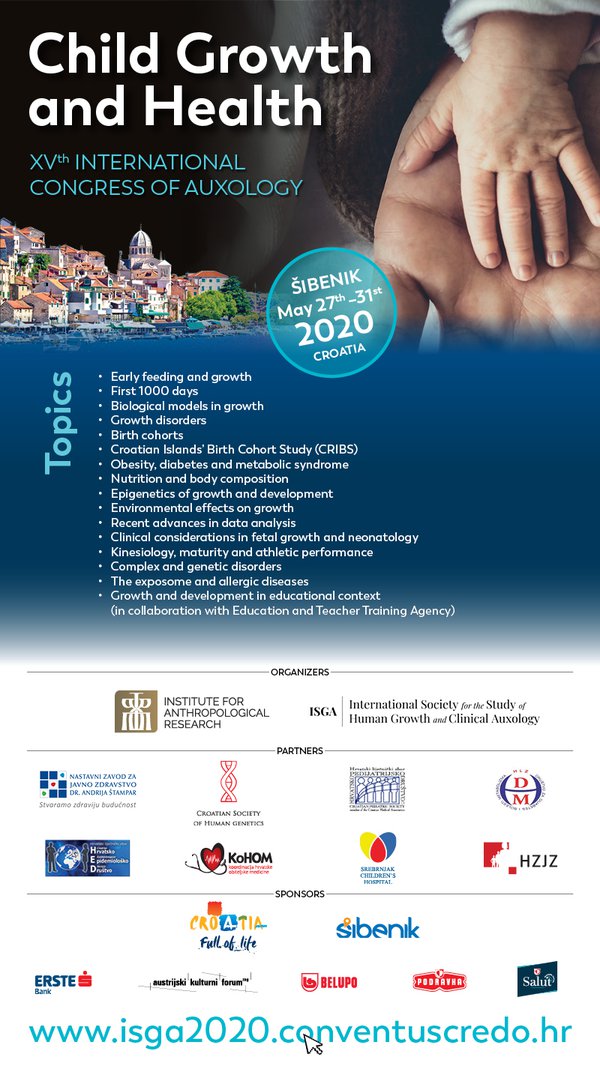
Submitted 31 January 2020 by Morana Jarec

Welcome to the XVth Congress of the International Society for the Study of Human Growth and Clinical Auxology (ISGA)!
Since ISGA's inaugural meeting in Rome in 1977, ISGA has been holding triennial meetings in major cities in Europe, the Americas and Asia; Havana, Cuba (1979), Brussels, Belgium (1982), Montreal, Canada (1985), Exeter, UK (1988), Madrid, Spain (1991), Szombathely, Hungary (1994), Philadelphia, USA (1997), Turin, Italy (2000), Florence, Italy (2004), Tokyo, Japan (2007), Mexico City, Mexico (2011), Maribor, Slovenia (2014) and Buenos Aires, Argentina (2017). ISGA has taken these opportunities to discuss the latest research in the field of human growth and development, in its clinical and non-clinical aspects, with scientists and clinicians from across the globe.
In 2020, Institute for Anthropological Research will be hosting the congress in the beautiful city of Šibenik in Croatia. Its 15th-century stone Cathedral of St. James is decorated with 71 sculpted faces and is on the UNESCO World Heritage list. It will form a dramatic location for the congress and is destined to be one of ISGA's most scenically rewarding destinations. This is a unique opportunity to experience world class science in a world class venue – an opportunity not to be missed!
The congress will feature more than 15 scientific sessions covering current research in human growth from conception to maturity. The first 1000 days forms a natural initial focus along with the growth and development implications of infant feeding, exercise in childhood and adolescence, the effects of environmental pollution, and the diagnosis and treatment of growth disorders. For human biologists, anthropologists, educators, neonatologists, paediatricians, family practitioners and health workers dealing with all aspects of child and adolescent development this congress will be a great opportunity to review your current research and future directions.
Copyright © 2024 American Association of Biological Anthropologists.
Site programming and administration: Ed Hagen, Department of Anthropology, Washington State University